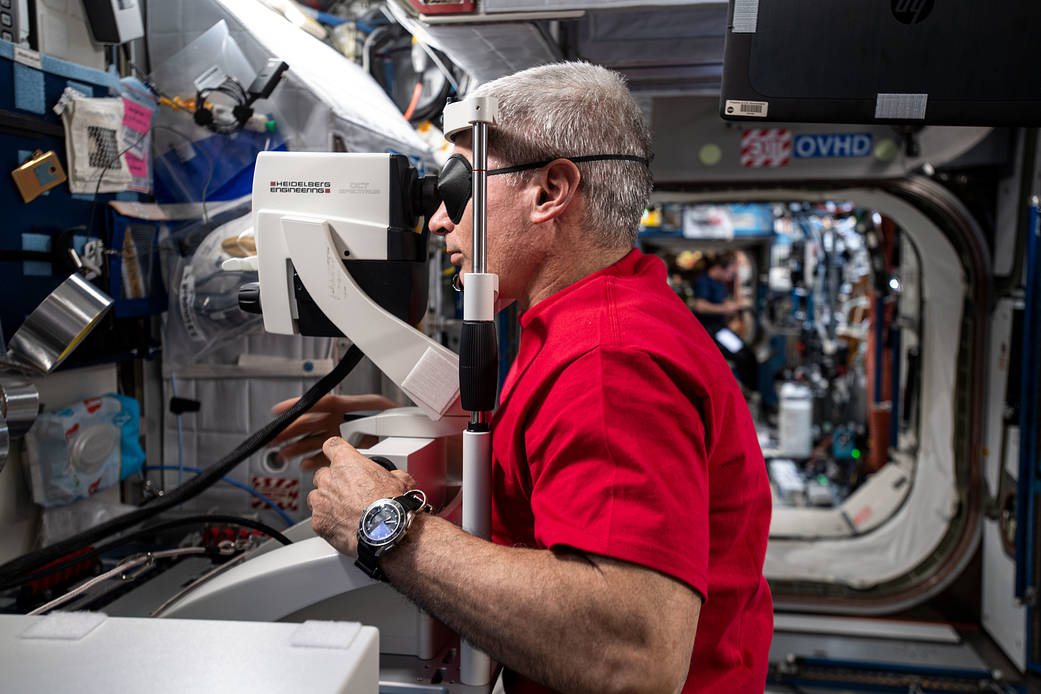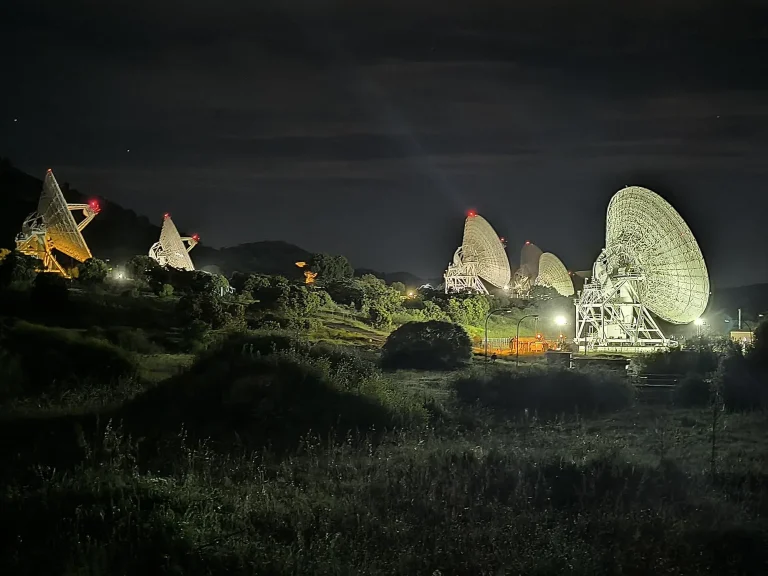宇航员马克·凡德·黑在空间站接受眼睛检查
NASA astronaut Mark Vande Hei peers into near-infrared medical-imaging gear, or optical coherence tomography, for detailed views of his retina as part of regularly scheduled eye checks aboard the International Space Station.
Astronauts periodically check their eyes because of a phenomenon known as Space-Associated Neuro-Ocular Syndrome (SANS). Symptoms include swelling in the optic disc, which is where the optic nerve enters the retina, and flattening of the eye shape. When researchers looked back, they found certain aspects of SANS in even the earliest spaceflights.
Image Credit: NASA
作为国际空间站定期视力检查的一部分,美国宇航局宇航员马克·凡德·黑凝视着近红外医学成像装置,或光学相干断层扫描,以获得视网膜的详细视图。
宇航员定期检查他们的眼睛,因为有一种现象被称为太空相关神经-眼部综合症(SANS)。症状包括视盘肿胀(视神经进入视网膜的部位)和眼睛形状的扁平化。当研究人员回顾过去时,他们甚至在最早的太空飞行中就发现了SANS的某些方面。
了解更多。
图片来源:美国国家航空航天局







